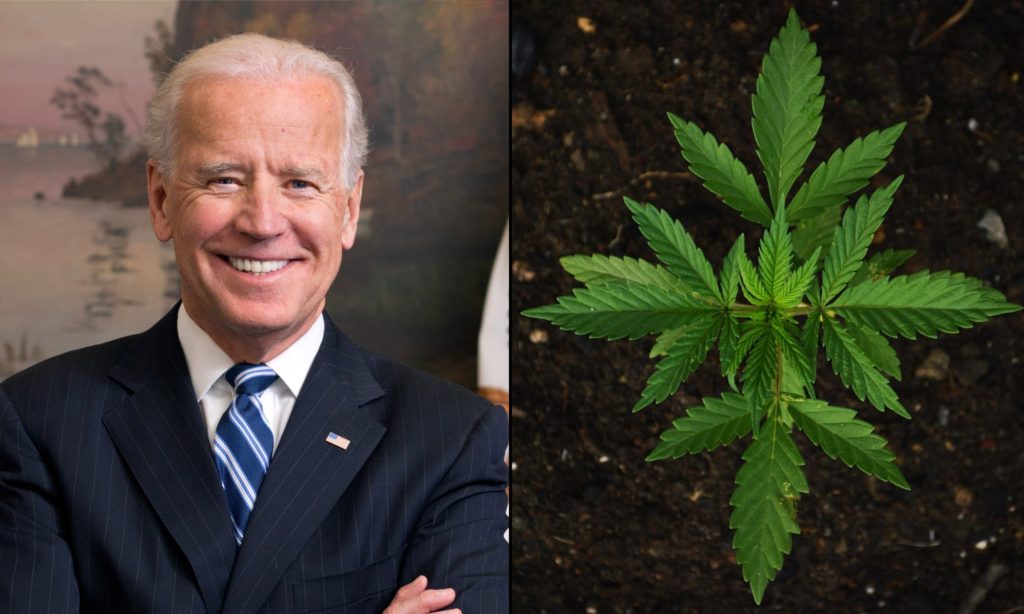Marijuana Moment
President Joe Biden is cheering another state-level action to clear marijuana conviction records action following his own presidential pardons, applauding Connecticut for taking action to provide relief to those who’ve been criminalized over cannabis. He similarly voiced approval after Oregon’s governor pardoned tens of thousands of cannabis cases last month.
On Wednesday, the president said it was “great news for Connecticut families who’ve been impacted by our nation’s failed approach to marijuana” after Gov. Ned Lamont (D) announced that the state will be automatically clearing records of low-level marijuana records for thousands of people at the beginning of the new year.
This is great news for Connecticut families who’ve been impacted by our nation’s failed approach to marijuana.
“No one should be imprisoned solely due to the possession of marijuana,” Biden said.
Other White House officials, including the nation’s drug czar and a communications official with the Biden administration, also touted the marijuana clemency development in Connecticut on Wednesday.
“Glad to see @GovNedLamont take this action in Connecticut,” Office of National Drug Control Policy (ONDCP) Director Rahul Gupta said on Wednesday. “@POTUS has pardoned all Federal offenses for low-level marijuana possession and called for Governors to take similar actions.”
A spokesperson for the White House separately said that Connecticut’s governor was following Biden’s “call for states to follow his lead on marijuana pardons.”
The president separately voiced his support after Oregon’s governor moved to grant tens of thousands of cannabis pardons late last month. Biden said that other states should “follow Oregon’s example.”
Oregon Gov. Kate Brown (D) has since described cannabis clemency as “very much a racial justice issue.”
Governors from states across the U.S. have given mixed responses about their plans for marijuana clemency in light of the president’s call to action, with some pledging to analyze their options and others noting that their authority is limited.
North Carolina Gov. Roy Cooper (D) came out in support of marijuana decriminalization in October, saying it’s time to “end the stigma” and announcing steps he’s taken to explore his options for independently granting relief to people with existing convictions.
Kentucky Gov. Andy Beshear (D), meanwhile, signed two marijuana-related executive orders last month: one to protect patients who meet certain criteria and possess medical cannabis legally obtained from dispensaries in other states, and another to regulate the sale of delta-8 THC products. The medical cannabis move is based on the governor’s clemency powers.
Back in Connecticut, Lamont has long supported legalization and celebrated the policy change that’s being actively implemented. For example, he shared a clip of a country song in June that including lyrics saying that one great thing about Connecticut is that it’s “cool to smoke some pot” since the governor signed the legalization bill.
Before signing the reform legislation, Lamont was asked if he’d partake himself when marijuana was officially legal—and he didn’t rule it out, saying “not right now, but we’ll see.”
Meanwhile, the governor also signed a large-scale budget bill in May that includes provisions to set the state up to provide certain patients with access to psychedelic-assisted treatment using substances like MDMA and psilocybin.
On the federal level, the Biden administration has seemed increasingly willing to lean into the popularity of marijuana reform since the president issued the pardons and directed an administrative review into federal cannabis scheduling.
For example, this week U.S. Health and Human Services (HHS) Secretary Xavier Becerra tweeted a link to a Marijuana Moment article that discusses the president’s recent administrative cannabis scheduling directive. He posted it at exactly 4:20pm ET.
“We’re going to take a look at what science tells us and what the evidence tells us,” Becerra, who has a considerable record supporting cannabis reform as a congressman and as California’s attorney general, said at the recent overdose prevention event. “That will guide what we do—and we hope that will guide what the federal government does.”
Following the president’s cannabis pardons and scheduling announcement, the secretary said that the department would “work as quickly as we can” to carry out the scientific review. And he’s already discussed the issue with the head of the Food and Drug Administration (FDA) to that end.
Separately, the White House drug czar said recently that that the president’s action was “historic,” adding that there are “clearly” medical benefits of cannabis.
Like HHS, DOJ has similarly committed to quickly carrying out the separate scheduling review the president directed, which could result in a recommendation to place cannabis in a lower schedule or remove it altogether, effectively legalizing the plant under federal law.
The president also officially signed a marijuana research bill into law last week, making history by enacting the first piece of standalone federal cannabis reform legislation in U.S. history.
A series of polls have shown that Americans strongly support the president’s pardon action, and they also don’t think that marijuana should be federally classified as a Schedule I drug.
If you think there has been a mistake, please contact the administrator via proxy server.
Marijuana Moment is made possible with support from readers. If you rely on our cannabis advocacy journalism to stay informed, please consider a monthly Patreon pledge.



